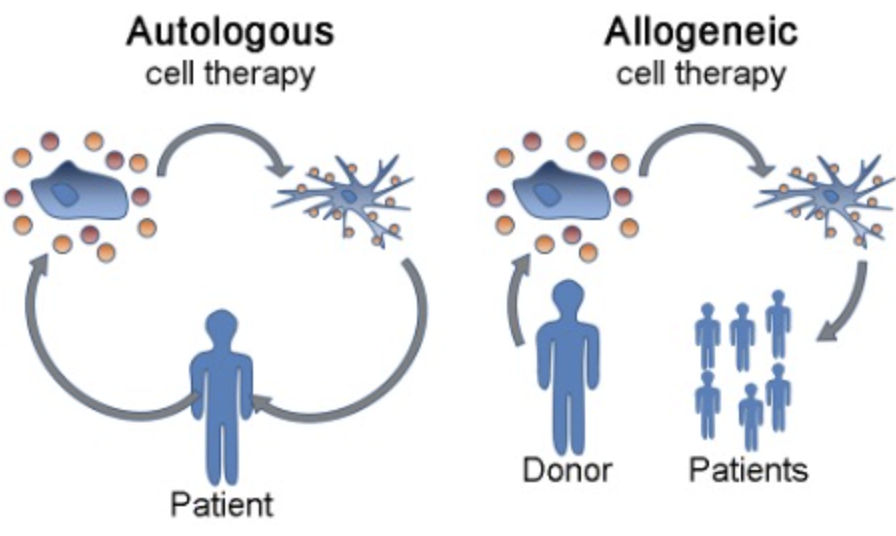Autologous vs. Allogeneic Stem Cells: Why Houston Patients Often Do Best with Their Own Cells

Stem Cell Therapy in Houston: Understanding the Two Main Types
If you’re exploring stem cell therapy in Houston, you’ll find two main categories used in orthopedic and regenerative medicine today: autologous (your own cells) and allogeneic (donor cells).
Both types release powerful growth factors that can reduce inflammation and promote healing, but their differences in compatibility, longevity, and safety make a big impact on results.
- Autologous regenerative cells are collected from your own bone marrow or fat, processed on the same day, and precisely reintroduced where your body needs repair. Alternatively, autologous stem cells are collected from your own fat and cultured in a lab to massively expand the number of your own stem cells for injection under the federal right-to-try and compassionate use laws.
- Allogeneic stem cells come from a donor and are stored for “off-the-shelf” use. Cultured allogeneic stem cells are not available in the United States, even under the right-to-try or compassionate use laws because the clinical research for allogeneic stem cells is much less advanced and safety has not yet been established. While many umbilical cord products are advertised as allogeneic stem cells, the FDA has found numerous sterility and other issues with these manufacturers.
At LifeStem Regenerative Medicine, located in Houston’s Memorial City area, we specialize in autologous therapies because they are safer, better integrated, and scientifically supported for long-term tissue restoration.
Why Autologous Stem Cell Therapy Often Outperforms Donor Cells
Recent research reveals key insights about how these cell types behave in the body:
Autologous Mesenchymal Stem Cells (MSCs)
- Communicate directly with local tissue using paracrine signaling, which reduces inflammation and activates your body’s natural repair mechanisms.
- Because they are from your own body, they avoid immune rejection and survive weeks to months integrated within your tissue, supporting the healing process.
Allogeneic (Donor) MSCs
- Offer short-term paracrine signaling to calm inflammation and activate your body’s natural repair mechanisms.
However, because they are genetically different, your body recognizes and rejects them within days. This is true even with birth tissue products, such as Wharton’s Jelly. Because of this, there is no evidence in the literature that allogeneic MSCs can integrate into your tissue to rebuild the damaged area.
Trusted Regenerative Medicine in Houston, Texas
LifeStem Regenerative Medicine is a trusted, physician-led clinic in Houston offering precision-guided autologous regenerative, stem cell and platelet-rich plasma (PRP) treatments for:
- Knee pain and osteoarthritis
- Shoulder injuries (rotator cuff, tendonitis)
- Hip joint degeneration
- Lumbar and cervical spine pain
- Sports and overuse injuries
Each treatment is performed with ultrasound or fluoroscopic image guidance to ensure precise placement and maximize your body’s regenerative potential — never a “one-size-fits-all” approach.
Cutting-Edge Research, Compassionate Expertise
While laboratories are developing gene-edited donor stem cells designed to “hide” from the immune system, these remain experimental, stuck in the “test tube” phase of scientific study with an unproven safety record.
That’s why our Houston regenerative medicine team continues to prioritize autologous therapies — combining advanced image-guided techniques with your body’s own biology for the safest, most natural and durable results.
